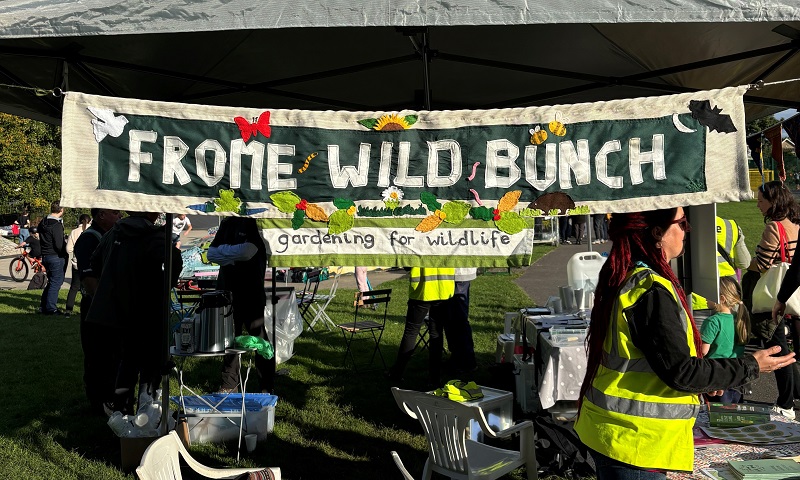
Greetings, this is Peter from the Wild Bunch.
This March was the sunniest ever in southern England, with some record-breaking temperatures and long dry spells. Hence wildfires occurring in the moors while dry winter bracken and grass has not been replaced with less flammable new shoots. While these fires clearly have a devastating impact on both plants and animals, the underlying climate chaos is much more concerning.
Most plants use two triggers to emerge from dormancy: day length and an accumulation of average temperature or number of days above a certain level. This means that even if there is a long warm spell, a plant won’t emerge unless day length says it’s the ‘right’ time. But extremes of unexpected temperatures can cause a plant to override the daylight trigger and emerge or flower anyway with two painful consequences. Firstly, if the weather changes back to normal, the new shoots suddenly find themselves battered in cold or storms. Secondly, the animals that depended on those plants are either not ready to emerge, or they too are caught in the cold that returns. In addition, animals may well be in a succession evolved over millennia, for example the birds nest a few weeks before they anticipate a peak of insects to feed their young. With our less predictable and more extreme climate, plants for the insects may have come and gone, leaving the birds without food.
What we can do to help is clear in the case of birds: keep feeding with appropriate foods. For the wider world of insects and soil life, what we can do to help is be messy! Leave any flowers (even the ‘weeds’) flowering and create as many different habitats as possible. This can mean little piles of stones, shaded areas, damp and wet areas. In the longer term, grow plants with longer flowering seasons which might be the saviour for bees which have emerged early, deceived by high temperatures. Aim to provide variety, always remembering that at the base of the pyramid are the billions and billions of microbes and fungi in our soils, which are also susceptible to excess and unexpected extremes. (You can boost all this with Living Soil deliveries from Loop Frome).
No doubt people from Climate Change Gardening will cover this in a lot more detail when they come to talk to the Wild Bunch in July. They exist to raise awareness about the impact of climate change on gardens and enable us to maintain an enjoyable, productive and resilient garden, despite the changes.
The next Wild Bunch meeting will be on Thursday 15th May at the town hall. Join Mike from Natural Bee Keeping to learn about wild bees and how to support them in your garden. Book free tickets at https://bit.ly/wild-bunch-may-25.

